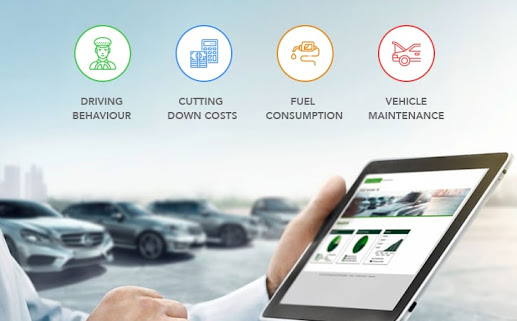Transportation and logistics are amongst the most dynamic, continuous, and challenging business sectors. Diversity of terrain, concerns related to the safety and location of a vehicle on the move, and the need as well as shortage of information makes fleet management an extremely difficult and challenging job. And, in the wake of the COVID-19 pandemic, the challenges have only become more daunting.
However, the power of an advanced fleet management system is helping the logistics operators manage their operations with greater control, efficiency and productivity.
In case you happen to be one of those companies that are still on the fence when it comes to deciding on adopting a fleet management system for your business, here are some of the reasons that should help you in making the right choice:
Superior visibility – With fleet management systems in place, you need not worry about the location or movement of any of your fleets. A cloud-based fleet management system would help the fleet managers track each vehicle’s status, and each driver’s actions to ensure that deliveries are made on time. Unlike the past times when they had to frantically make calls, the software can track the vehicle from a single central dashboard, and get live location updates.
Lower vehicle downtime – A good fleet management system undertakes real-time monitoring of vehicles, and offers insights on a vehicle’s operating condition, enabling predictive maintenance. By keeping vehicles in good condition, you’ll be able to reduce the downtime significantly while ensuring smooth and uninterrupted operations.
Reduction of operational costs – A world-class system would use cutting-edge IoT and AI tools to monitor a vehicle’s operations. It would monitor the data and provide insights on how to reduce avoidable operational costs. Considering the importance of logistics expenses, every incremental improvement can help large fleet operators save significant amounts and increase profitability.
Automation – A lot of time is spent by logistics companies on outdated paper processes, compliances and human interactions related to routine tasks. However, a transport management system would use futuristic AI and machine learning technologies to automate processes such as invoicing and would reduce manual data entry by up to 75%.
Superior customer experience – In the modern world, good customer experience transforms to greater and faster business growth. That’s where an advanced software can completely streamline processes, provide real-time tracking and visibility of space and vehicles, and would help fleet managers ensure on-time deliveries. With all such benefits, the customers 4would stay happy and satisfied with their service providers.
Features to Look for While Selecting a Fleet Management System
Achieving all the above-mentioned advantages is imperative for any logistics business. However, before you select a fleet management system for your company, you must also carefully examine the features that a market leading system should offer you. Here are a few things you should look out for:
- It should be a software that can be seamlessly deployed on premises or in the cloud as per the need.
- The company offering the logistics software should have adequate experience and global presence to ensure that the software can help you take care of all your fleet operations across domestic as well as international locations.
- The transport management system would also be an end-to-end platform that offers seamless integration with various leading software to ensure seamless data transfer and interoperability.
For any transport/logistics business that aims to grow and generate better revenues, it is imperative to adopt the latest technologies such as fleet management systems or logistics software at the earliest. Because, the future is digital and companies that don’t digitize their operations now, will eventually become irrelevant.
